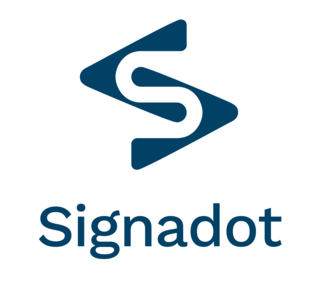
Company: Knewton
Website: www.knewton.com
Headquarters: New York City
Year Founded: 2008
Founder: Jose Ferreira
Investors: FirstMark Capital, Accel Partners, Bessemer Venture Partners, First Round Capital; angel investors
Employees: 45
Company Description:
“Knewton is replacing mass education with personalized learning.”
By Jose Ferreira, CEO
 The idea of learning on the Internet is difficult for some people to swallow; the phrase “online education” evokes grainy one-way video lectures, boring, ineffective lessons, and/or slimy for-profit degree mills.
The idea of learning on the Internet is difficult for some people to swallow; the phrase “online education” evokes grainy one-way video lectures, boring, ineffective lessons, and/or slimy for-profit degree mills.
Knewton is none of the above.
Instead, with the help of our revolutionary adaptive learning engine, we at Knewton are out to prove that online learning works—and in fact, can be more engaging, effective, and scalable than traditional classroom approaches. We currently use an initial version of our adaptive learning engine in our online GMAT, SAT, and LSAT courses.
The idea for Knewton first came to me 18 years ago, when I began working at Kaplan. I saw a lot of unproven instructors teaching students at local Kaplan centers, and got tired of telling students they needed help in broad areas like “geometry.” I wanted to be able to target students’ weaknesses at a much more granular—and meaningful—level.
Now, the technology has finally caught up with the vision. Adaptive learning—the notion that computers can improve educational outcomes—has been around for a long time, but most approaches have been on a small scale, or reliant on overly simplified technologies. Our adaptive learning platform facilitates the tagging and organizing of all educational material, delivers and assesses learning items, and serves optimized learning content for each individual student. With Knewton, all educational content will become dynamic, interactive, and individualized. In our SAT course, instead of telling a student he needs help with geometry, we can tell him that while he has a firm handle on the fact that all radii in the same circle are equal, he needs more strategies for 3-4-5 right triangles, and here are some practice questions on that topic. That’s adaptive learning—and it’s a very powerful tool.
Our courses’ adaptivity isn’t their only selling point. At Knewton, we also pride ourselves on our superior customer service, satisfaction, and teacher quality (our Net-Promoter Score is a 70, vastly superior to many other test-prep companies, whose scores hover around 10 or 20). We bring excellent teaching to students anywhere in the world; to ensure personalized attention and interactivity, our test-prep courses are team-taught and use live chat. Because we are online, we have less overhead than traditional brick and mortar providers and can sell our courses for a fraction of the price of our competitors. We also offer unheard of money-back guarantees (an increase of 50 points on the GMAT, 150 on the SAT, and 5 on the LSAT).
The potential for the Knewton platform goes far beyond the GMAT, however. Knewton’s vision is to revolutionize test prep, and then open up our platform to third-party content providers to allow the technology to power education in the broadest sense. The world is in the midst of a one-time rapid migration of the world’s educational content, from print to digital. Knewton’s adaptive learning engine will systemize this content, merging learning items with content management systems to make relevant educational material available to students around the globe.
Our platform combines a number of different technologies, including a proficiency engine that tells us each student’s unique learning profile, and a concept prioritization engine that determines which specific learning item to serve up, at which time. To power these engines, we’re building self-serve interfaces, auto-tagging tools, and APIs integrated with major repositories of educational content.
Years from now, when we’re done, teachers, trainers, and publishers alike will be able to manage and distribute their content in ways they never thought possible. We’re also developing complex algorithms that will query previous students’ data; as more students and content are entered into the system, our recommendations will become smarter.
As far as we know, no other team in the world is working to combine these technologies in such a comprehensive way.
We currently have 45 full-time employees, up from 30 in December ’09. We closed a third round of funding in April 2010, led by FirstMark Capital, to bring our total capital to just under $20 million. Other investors include Accel Partners, Bessemer Venture Partners, First Round Capital, and prominent angel investors like Ron Conway and Reid Hoffman.
Knewton – www.knewton.com







